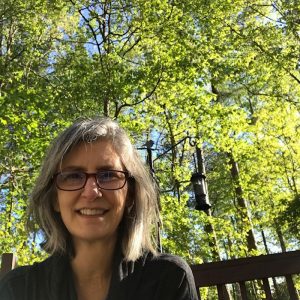A ring of children crowd around a kneeling camp counselor, who holds a dragonfly just inches from their faces.
“How can you tell this guy is a predator?” the counselor asks.
“Big eyes!” one child volunteers.
“Spiky legs to hold prey!” another says.
This is a typical scene at the Clifton Institute, an environmental education center and research station located in Fauquier County, about an hour’s drive from Washington, D.C. Protected by a VOF easement since 2008, the 900 acres of eastern deciduous forest and open fields serve as a biological field station, providing an outdoor classroom and living laboratory to researchers, students, and the community at large.
“Our goal is to get people to realize what they’ve got in their own backyard,” says Bert Harris, the Institute’s executive director. Bert and his wife, Eleanor, who is managing director of the Institute, are both biologists and adjunct professors at American and George Mason Universities.
They are also part of a new team that is growing the Institute’s work in research, ecological restoration, and education. Research experiments are being conducted on the property now that measure the importance of vernal pools for salamander populations and the effects of cows on soil quality and habitat. In addition, members of the community are taking to the trails to catalogue the species present on the property with iNaturalist — an online, crowdsourcing website where naturalists, citizen scientists, and biologists can share their observations. So far, they’ve discovered more than 730 species on the Institute’s grounds and have catalogued them at https://www.inaturalist.org/places/clifton-institute-field-station.
Restoration initiatives include restoring 300 acres of native grassland and shrub fields on the property. “We’re planning a huge experiment,” Bert says. “We want to plant 10-acre blocks with different seed mixes and try different methods of maintenance, such as prescribed fire and tilling. The goal is to see which treatment works best for establishing a functioning native grassland. This way we can educate landowners from what we find out.”
Landowners aren’t the only ones benefiting from the Institute’s work. A newly hired full-time educational associate, Alison Zak, is establishing a curriculum for students of all ages. She and other staff will have their hands full in 2019, as the Institute expects to host 800 elementary, middle, and high school students from private, public, and home schools in its outdoor classroom.
The Institute’s monthly Saturday youth hike is a popular activity for kids 5 and up, who can learn about ecology, conservation, and different species native to the Piedmont region while having fun outside. For adults, bird walks and naturalist seminars conducted by experts several times a month are an opportunity to learn about wildlife in the field.
The Institute is a nice fit for a county that has long embraced land conservation. Fauquier is VOF’s largest county for easements, with 71,000 acres protected. VOF also owns and manages the nearby Bull Run Mountains Natural Area Preserve, a popular destination for hikers and an important block of habitat that’s just a 15-minute drive from the Institute.
Despite the conservation success in the area, residential and commercial development pressure continues. “Urban sprawl in this area is advancing pretty fast, and there is still so much here to save,” Bert says. “Ours is one of the bigger properties in the region. Just knowing it will always stay that way is fantastic. We’re trying to convince our neighbors to protect their land, too.”
